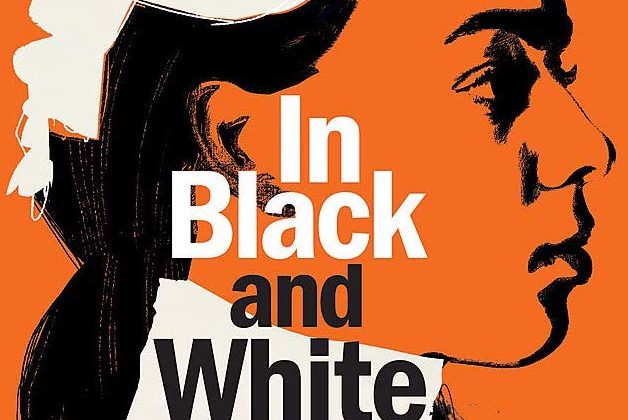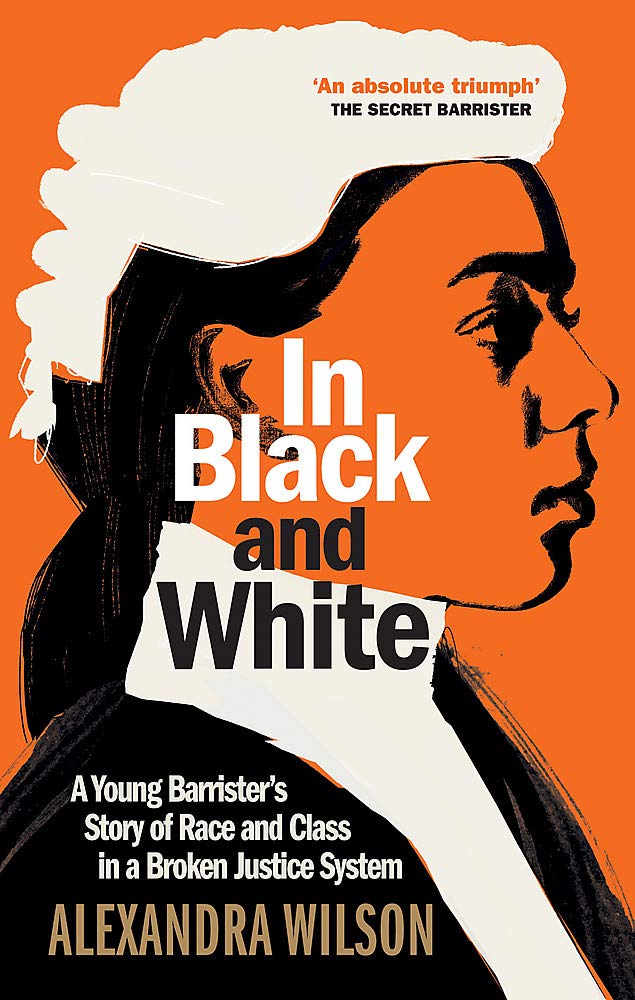Book review: In Black and White, by Alexandra Wilson
Andrew King reviews the compelling account of a young black barrister’s journey to the Bar and the systemic prejudice she still encounters in her professional life. … Continue reading

A search for Alexandra Wilson’s book online immediately brings up the following quote from the Secret Barrister:
“An absolute triumph; a compelling and courageous memoir forcing the legal profession to confront uncomfortable truths about race and class. Alexandra Wilson is a bold and vital voice. This is a book that urgently needs to be read by everyone inside, and outside, the justice system.”
These words sum up In Black and White perfectly.
***
One of the questions that frequently comes up at interviews for aspiring lawyers is aimed at identifying why a candidate has been drawn to the law. I can remember being routinely asked this at training contract interviews when I was a student. I cannot recall the exact response I would give to this question, save that I know I did not ever give the true answer – that Channel 4’s Brookside, of all things, had initially grabbed my attention and interest in the legal process.
After suffering the murder of a close family friend, Ayo, when both he and Alexandra were 17, Alexandra started to attend court trials, and her interest in law and justice was piqued. In one anecdote, Alexandra reveals how she provided a true answer to a question similar to the one I have described, explaining how her friend’s death had provoked her interest. The interviewer did not know how to react to such an honest answer, and Alexandra did not provide such a response in the future.
The openness with which Alexandra discusses Ayo’s murder is heartbreaking. Alexandra is candid, and in being so, engages the reader immediately.
***
At the many trials she attended, Alexandra quickly became aware of the lack of diversity in the legal system: almost all the barristers and judges were white. This was in stark contrast to the number of black defendants who were being prosecuted. Indeed, Alexandra discusses within the book – despite the number of black individuals being called to the Bar – how long it took for the first black QC to be appointed, as well as how few individuals from BAME backgrounds have been appointed to the judiciary. The presentation of these statistics brings into focus just how slowly the wheels of change move.
Alexandra was determined to make a difference and confident she could do so. In Black and White plots Alexandra’s journey through her studies (where she was the only black student in a 120-person year group at the University of Oxford), into pupillage and then onto qualification as a self-employed barrister.
Throughout the book, Alexandra provides insight into the process she endured to qualification, explaining to readers what was required of her as with any aspiring barrister. The book is written in such a way that it will appeal to both lawyers and non-lawyers alike.
At every stage of her journey, Alexandra describes being subjected to discrimination and ill treatment based, not only on her race, but also her socioeconomic background. Throughout each stage, Alexandra paints a picture of how challenging her journey has been and it is clear how many individuals in similar circumstances will be unable to replicate Alexandra’s successes. On more than one occasion, it is suggested to Alexandra (at networking events or similar) how she may find it difficult to qualify as a barrister, with one (white male) barrister offering much surprise at the achievements she had enjoyed already, the inference being that her race and class are too big an obstacle.
With the Black Lives Matter movement attracting mainstream media attention, there has been lots of discussion around what employers and professions can do to ensure those from BAME backgrounds are not prejudiced. Alexandra’s account describes many indirect consequences of inequality, such as the cost of having to acquire a wig and gown, as examples that impact individuals from less-privileged backgrounds.
Since publishing In Black and White, Alexandra has received widespread media interest following a tweet in which she shared how, in attending court that day, she had been mistaken for a defendant on three separate occasions. Similar occurrences are described in her book. Following that tweet, recounting how she was shouted at by a court clerk and told to leave the courtroom, the CEO for HMCTS publicly apologised to Alexandra. Yet such an incident throws up questions about the treatment of those from BAME backgrounds more generally within the legal process and the need for diversity training at all levels.
Having qualified as a barrister, Alexandra shares anonymised details of some of her cases and describes the clients she has been instructed to defend. Many of her clients are from BAME and/or low socioeconomic backgrounds. Alexandra discusses the rapport she has been able to develop with clients, with many defendants feeling able to discuss their case with Alexandra and that she understands them. Those clients evidently have not felt the same rapport has been established with their previous barristers who do not share the same background as Alexandra.
***
Alexandra’s story is compelling. Her introduction to the law is unique and the emotional nature of this immediately draws you into her journey to qualification.
The prejudices Alexandra suffers along the way are clearly far from uncommon, and Alexandra is open in sharing her experiences. These experiences need to be taken on board by those empowered to make change happen. A young black suited female should not be assumed to be the defendant to a charged offence in 2020 because of the colour of their skin. This shows just how much progress still needs to be made.
There is a perception about what a barrister or a judge presents as, and this feeds into both race and class. I was struck by one stand out example Alexandra provided on this, describing the efforts she went to in straightening her naturally curly hair at an early stage of her career. This fortunately did not last long, and Alexandra was quick to embrace her natural appearance, but its impact is clear. Individuals from BAME or low socioeconomic backgrounds should not feel they need to adjust their presentation in order to ‘fit in’.
Alexandra was called to the Bar in 2018 and has her whole career ahead of her. By bravely putting her head above the parapet and calling out the profession’s prejudices, the hope can only be that she has accelerated change, helping to remove some of the obstacles that she had to overcome in order to qualify as a barrister.
As the Secret Barrister has said, “this is a book that urgently needs to be read by everyone inside, and outside, the justice system.”
5 stars

In Black and White: A Young Barrister’s Story of Race and Class in a Broken Justice System, by Alexandra Wilson (Endeavour, £16.99)
Andrew King is a civil litigation specialist with Lennons Solicitors. His book, The Virtual Workspace: 50 tips for effective video conferencing (paperback, £7.99, e-book £3.95) was reviewed here.